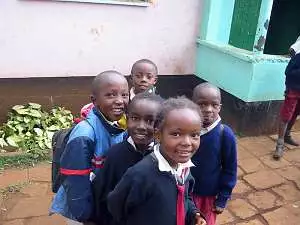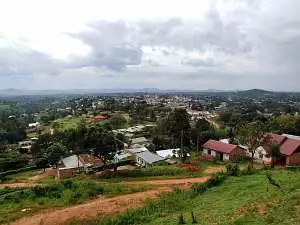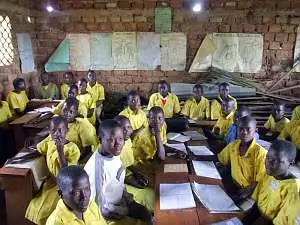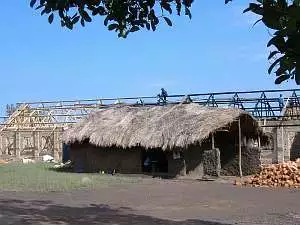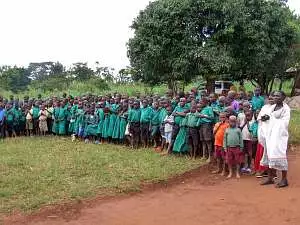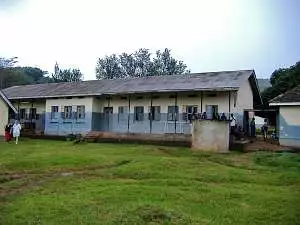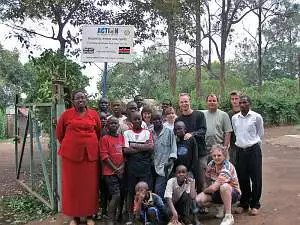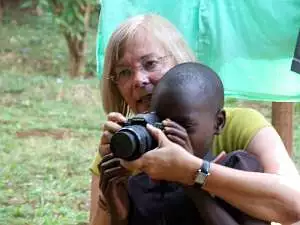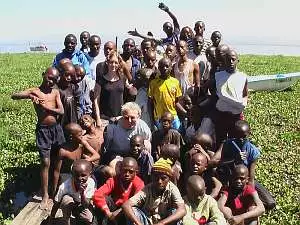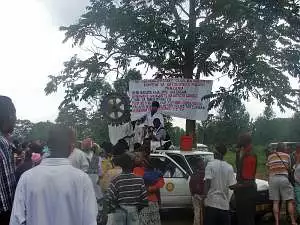Overview
Some years ago, Abingdon Vesper was visited by a Ugandan Rotarian who had been sent to the UK to learn about sustainable farming techniques. She introduced us to Elijah Kyamuwendo, the Chief Executive of Kulika, a Kampala based charity specialising in promoting sustainable, organic farming.
We also established links with the Rotary Club of Mubende, a town some 100 miles west of Kampala and as a result we have been helped greatly in identifying projects in Uganda, particularly around Mubende district. In time we have also extended our work in Africa to Kenya and Tanzania and club members pay regular visits to the region.
Uganda
Five members of Abingdon Vesper Rotary Club visited Uganda in 2007 and again in 2008.
Read more about:
Help for farmers
Mubende is essentially a rural area and much of our work has been with farmers in the district.
This has included providing farming tools and supplies, holding training sessions, providing a well and access to a clean water supply, and establishing several community based microcredit schemes.
Read more about:
Working with schools
We have worked on projects with several schools in the Mubende district. This has included working with Oxfordshire school children to provide classroom furniture at Kyamukoona school, where we have also replaced the school's water tank.
With the Rotary Club of Mubende we have just completed a project with a matching grant from the Rotary Foundation at Mugungulu school. This paid for classroom equipment, fencing and planting for the school site, water harvesting equipment, and new latrines at the school, as well as mosquito nets and wood burning stoves for local village.
We are about to replicate this at Keyo school, Gulu, in the north of Uganda in the area which suffered so much until recently under the civil war. This is a further matching grant project in partnership with the Rotary Club of Mengo and support from Didcot Girls School.
Read more about:
Combining Hands for Mubende
Our plan is now to build on what we have learned from these projects and we have submitted a proposal to the Rotary Foundation to fund a major project repeating this work at up to 10 more locations in the Mubende area. This work will be supported by partner clubs in the Netherlands, Italy and France, all working together to deliver an effective solution that achieves improved health and education and more sustainable communities.
Read more about:
Help for Mubende hospital
We have previously funding professional training for a doctor at Mubende hospital and providing a laptop to help with hospital administration. More recently we have provide the hospital with funds for effective washing facilities in the laundry and friends of our club provided the money to provide additional equipment and supplies to help with hospital cleaning.
This is an area where there is still much to do and we are looking at how we can provide further help in the future.
Read more about:
Kenya
Working with Action for Children in Conflict (AfCiC) and the Rotary Club of Thika, we helped to fund an interim care centre for street children in Thika, near Nairobi with a grant from the Rotary Foundation. This has helped AfCiC halve the number of street children in the town to 200 in just three years.
AfCIC has been heavily occupied with the aftermath of the troubles in Kenya early in 2008. They have been working with displaced persons who have settled in the Thika area and Abingdon Vesper have been helping them with support for these people, including providing school uniforms and small loans to establish new businesses. We have also provided the charity with several laptop computers donate by local businesses.
Read more about:
- AfCiC
Following an initiative by Rotary Club of Abingdon Vesper member Bruce Gow, an annual Christmas camping trip for street children in Thika allows the children to experience part of their own country and a completely different environment.
Read more about:
Tanzania
In partnership with RC Haddenham, we have funded training for Tanzanian doctors at the John Radcliffe Hospital.
We have supported the REMIT scheme (Rotarians Eliminating Malaria In Tanzania) which through supplying mosquito nets has helped reduce malaria by 50% in the Arusha area.
